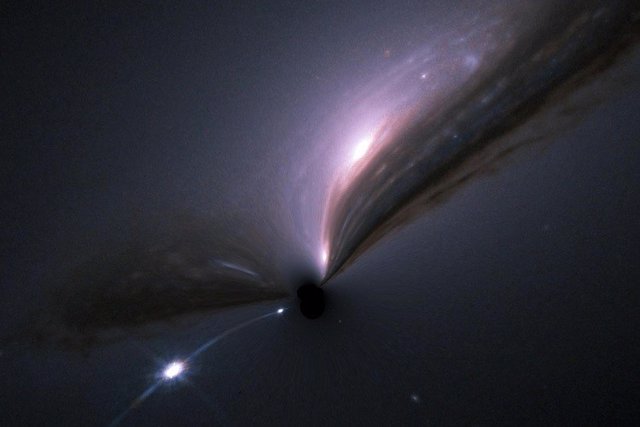Black hole discovered at the dawn of the universe


Archive – Black Hole – MIGUEL ZUMALACAREGUY – Archive
MADRID, January 17 (EUROPE PRESS) –
Astronomers led by the University of Cambridge have discovered the oldest black hole ever observed, dating back to the dawn of the Universe. “devours” its parent galaxy.
This team used the NASA/ESA/CSA James Webb Space Telescope (JWST) to detect the black hole. So they were able to analyze it dates back 400 million years after the Big Bang. more than 13 billion years ago.
Results that, according to lead author Professor Roberto Maiolino, are “a big step forward.” published in the journal Nature.. The fact that this amazingly massive black hole (several million times the mass of our Sun) exists so early in the Universe challenges our assumptions about how black holes form and grow.
Astronomers believe that supermassive black holes at the centers of galaxies such as the Milky Way have grown to their current sizes over billions of years. But the size of this newly discovered black hole suggests they could have formed in other ways: they could have been “born big.” or they could eat matter at a rate five times greater than previously thought.
According to standard models, supermassive black holes form from the remains of dead stars that collapse and can form a black hole about a hundred times the mass of the Sun. If it had grown as expected, this newly discovered black hole would have taken several billion years to grow to its observable size. However, the Universe was not yet a billion years old when this black hole was discovered.
Like all black holes, this young black hole absorbs material from its parent galaxy to fuel its growth. However, this ancient black hole has been found to devour matter at a much greater rate than its more recent cousins.
The young host galaxy, named GN-z11, is a compact galaxy about a hundred times smaller than the Milky Way, but a black hole is likely preventing its development. When black holes absorb too much gas, They push him like a super fast wind.
This “wind” could stop the star formation process, slowly killing the galaxy, but it would also kill the black hole itself, since it would also cut off the black hole’s “food” source.
Maiolino says JWST’s sensitivity means even older black holes could be discovered in the coming months and years. Maiolino and his team hope to use future JWST observations to try to find smaller black hole “seeds” that could help them unravel the different ways black holes form: whether they start out large or grow quickly.
